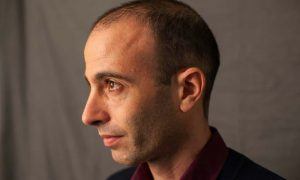Andrew Anthony in The Guardian:
 You are now a highly successful public intellectual. In what ways has international recognition changed you?
You are now a highly successful public intellectual. In what ways has international recognition changed you?
Well I have much less time. I find myself travelling around the world and going to conferences and giving interviews, basically repeating what I think I already know, and having less and less time to research new stuff. Just a few years ago I was an anonymous professor of history specialising in medieval history and my audience was about five people around the world who read my articles. So it’s quite shocking to be now in a position that I write something and there is a potential of millions of people will read it. Overall I’m happy with what’s happened. You don’t want to just speak up, you also want to be heard. It’s a privilege that I now have such an audience.
How do you set about deciding what are the most pressing questions of the age?
Actually in a way this was the easiest book to write because it was written in conversation with the public. Its contents were decided largely by the kinds of questions I was asked in interviews and public appearances. My two previous books were about the long-term past of humankind and the long-term future. But you can’t live in the past and you can’t live in the future. You can live only in the present. So unless you can take these long-term insights and say something abut the immigration crisis, or Brexit or fake news, what’s the point?
More here.
